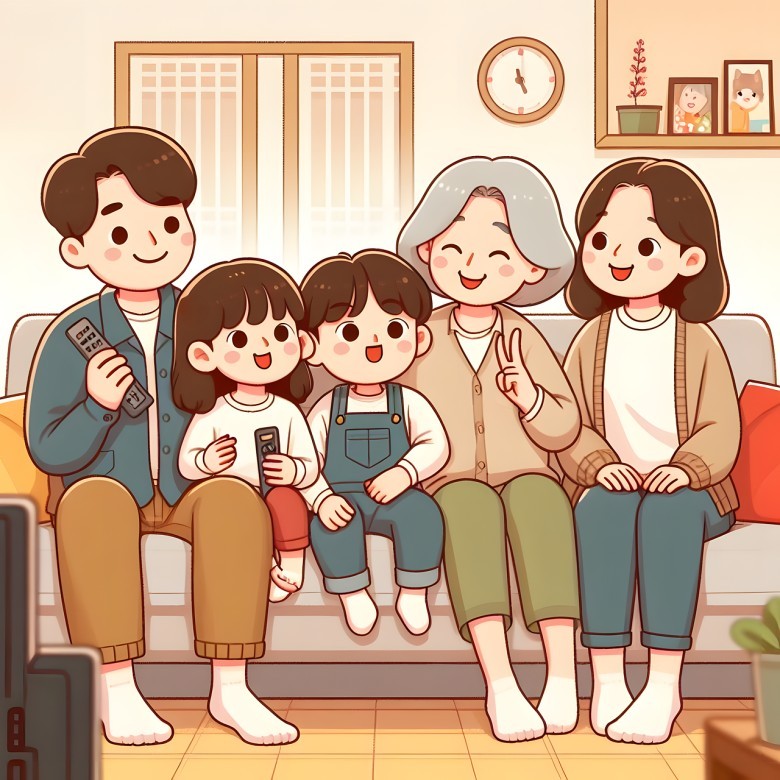views
The Hidden Mental Health Crisis in Filipino Homes and How to Fix it Without Guilt.
The Silent Struggles Beneath One Roof
Filipino families have long prided themselves on close-knit, multigenerational homes—where grandparents, parents, and grandchildren live under one roof, bound by love, duty, and necessity.
But beneath the surface of this cherished tradition lies a growing crisis: homes that should be sanctuaries have become battlegrounds of exhaustion, resentment, and stifled emotions. The very setup meant to provide support is now straining mental health, with young adults locking themselves in bathrooms to cry, OFWs sacrificing their comfort to fund households they barely recognize, and grandparents feeling disrespected by the very children they raised.
The statistics are alarming: 68% of Filipinos in multigenerational homes report anxiety (UST, 2024), while 84% of young adults admit they have no private space (UP Survey, 2023). The problem isn’t just physical space—it’s the emotional toll of constant negotiation, the guilt of wanting independence, and the suffocating pressure to conform to family expectations.
Yet moving out is often financially impossible or culturally frowned upon. So how do families survive—and even thrive—without breaking apart? The solutions don’t require drastic measures, just small, intentional changes that restore dignity, privacy, and peace.

The Hidden Costs of Togetherness
1. The Privacy Famine
In a country where space is a luxury, personal boundaries are often the first casualty. Ana, 24, confesses, "I changed my tampon in the Jeepney terminal bathroom because our house has no locks." Her story isn’t unique. With multiple generations sharing cramped quarters, even basic bodily privacy becomes a privilege.
Bedrooms double as workstations, dining tables become study desks, and bathrooms turn into the only escape for moments of solitude. The lack of personal space doesn’t just breed discomfort—it erodes mental well-being, leaving many feeling perpetually exposed and on edge.
2. Generational Warfare
Clashes over "respect" are tearing families apart. A staggering 61% of conflicts stem from differing values—Gen Zs demanding equal say, while elders uphold traditions like "Walang hiya!" when their authority is questioned. A simple request to lower the TV volume can escalate into accusations of ingratitude, and a teen’s social media use becomes a moral failing in the eyes of a grandparent.
These daily skirmishes leave everyone wounded, with love buried under layers of resentment.
3. Silent Sacrifices
For OFWs like Marco in Dubai, the sacrifice is even more painful: "I pay for this house but sleep on the floor when I visit." Many overseas workers pour their earnings into homes they barely inhabit, only to return to a space where they feel like guests. Meanwhile, stay-at-home adult children juggle caregiving and careers, their own dreams deferred in the name of familial duty.
The unspoken rule? "You owe your family everything—even if it costs you yourself.

Solutions (No Need to Move Out)
1. The 5-Square-Meter Escape
Privacy doesn’t require an extra room—just creativity. A Php 300 room divider, a curtained-off bunk bed, or even a repurposed balcony can carve out sacred personal space. Tintin from Cebu shares, "My 'office' is a curtained-off corner of our bedroom. It’s tiny, but it’s mine."These micro-sanctuaries restore a sense of control, offering a mental breather in the chaos.
2. The "Respect Reset" Family Meeting
Conflict drops by 40% when families use "I feel" language (Ateneo Study). Instead of explosive arguments, try: "Lolo, I love you, but when you call me ‘tanga’ over WiFi issues, I shut down. Can we try, ‘Pwede ba ituro mo sa’kin?’ instead?" Framing concerns around emotions—not blame—helps elders see the impact of their words while preserving their dignity.
3. Noise Warfare Hacks
Peace isn’t about silencing each other—it’s about compromise. For elders: Php 100 earplugs soften 3 AM prayer disruptions. For the young: Brown noise playlists drown out TV debates. Small adjustments allow coexistence without resentment.
CONCLUSION - Rebuilding Home Without Breaking Family
Multigenerational living doesn’t have to mean misery.
The Filipino home can still be a place of love—just with healthier boundaries. It starts with acknowledging that "tolerating" each other isn’t the same as thriving together. By reclaiming small pockets of privacy, reframing conflicts with empathy, and embracing practical compromises, families can transform their homes from pressure cookers into spaces of mutual respect.
The Santos family proved it’s possible. Once on the brink of explosion, they turned their 30-sqm house into a "peace zone"—no evictions, just understanding.
Their secret? "We stopped pretending everything was fine and started fixing what wasn’t."
Share your story—what’s your survival hack? The more we talk, the more we break the silence.
---- copyright notification ----
© 2025 by Mariza L. Lendez. All rights reserved. www.chikicha.com
This article "Multigenerational Living Article #2: "WHEN HOME HURTS"" is forms part of my dissertation. All materials herein are protected by copyright and academic intellectual property laws. No part of this work may be reproduced, published, or distributed in whole or in part without express written permission from the author, except for academic citation or fair use with proper attribution. Based on verified data, peer-reviewed literature, and insights from national and global agencies and with the help of AI for deep research.
Citation Format
Lendez, Mariza (2025). [Multigenerational Living Article #2: "WHEN HOME HURTS"] In "Designing a Purpose-Driven Retirement Model Based on the IKIGAI Philosophy" (unpublished dissertation). Philippine Women's University.
Cited Sources:
- University of Sto. Tomas (2024). Multigenerational Stress in PH Homes.
- UP Population Institute (2023). Conflict Resolution in filipino Families.
- University of the Philippines. (2023). Living conditions of young adults in multigenerational households [Report].




















Comments
0 comment